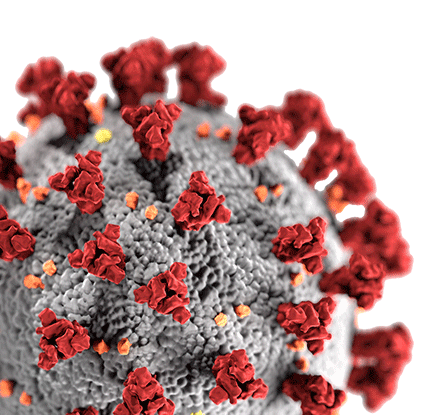Mental health update: Economic challenges caused by COVID-19 linked to greater psychological distress.
Editor’s Note (06/18/2020): This article includes findings from our third wave of data collection that fielded May 18 through May 20. This third wave collected another 1,000 completes using a census-balanced, national non-probability sample. The new information, shared below, examines psychological distress during the COVID-19 pandemic. Learn more about the ICF COVID-19 Monitor Survey of U.S. Adults.
In our second report on American mental health amidst the pandemic, we examined how economic stressors (e.g., loss of job, reduced work hours) were related to poorer mental health. We reported on levels of psychological distress in March and April, noting no change among the overall population, but an increase in moderate and severe distress for those economically impacted by the loss of a job or reduced work hours. For our third report, we dive further into American psychological distress as the pandemic continues and discuss implications for public health officials.
Nearly a quarter (24%) of Americans reported moderate or severe psychological distress, unchanged since March.
Moderate and severe psychological distress calculated using the Patient Health Questionnaire for Depression and Anxiety (PHQ-4) scale did not significantly change in May (24%) compared to March and April (both 23%). Psychological distress score has a significant negative relationship with general health ratings, with those reporting better general health showing less psychological distress.
The relationship between psychological distress scores and mental health ratings is noteworthy as well: our findings showed that psychological distress is significantly related to the number of bad mental health days respondents reported in the past week. Those with moderate and severe psychological distress reported a higher average of bad mental health days within the past week compared to those with mild or no psychological distress.
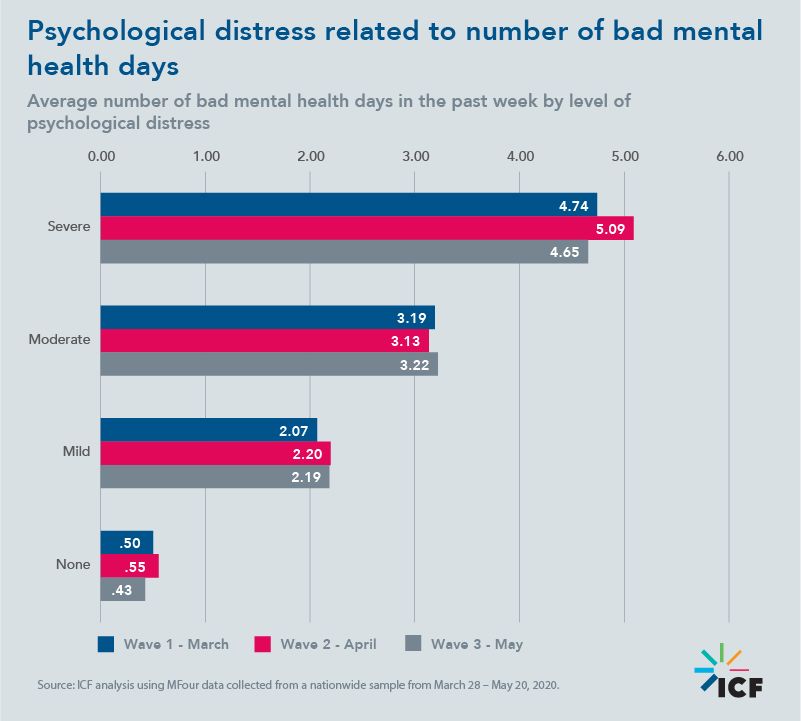
Unemployed and disabled Americans experienced significantly greater psychological distress.
As previously reported in our Wave 2 findings from April, economic challenges (such as job loss and reduced hours) were significantly related to higher levels of psychological distress. For May, we examined the relationship between current employment status and psychological distress. Americans who are currently unemployed and looking for work, as well as those who are disabled, were approximately twice as likely to have moderate or severe psychological distress as those Americans who were employed. At the time of the survey, approximately 40 million Americans had filed for unemployment insurance, suggesting many Americans are facing significant mental health burdens during the pandemic.
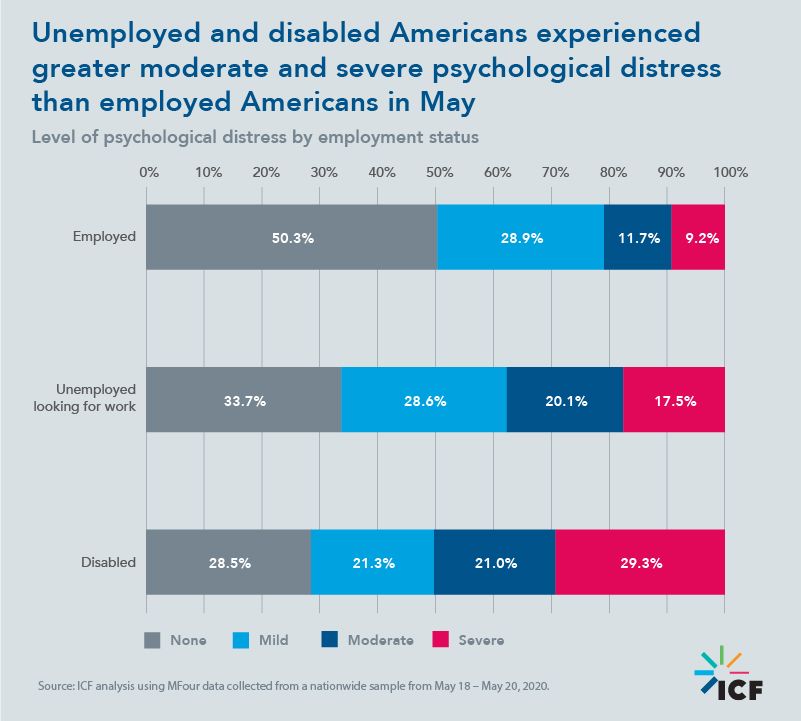
Americans who have experienced being laid off (permanently or temporarily) since January continue to report higher moderate and severe psychological distress. In addition, moderate and severe psychological distress dropped considerably in May for those who had been laid off temporarily (21%) from April (28%) and in comparison with Americans who had experienced being permanently laid off (32% in May). For context, May signaled the end of stay-at-home orders across many states and the reopening of non-essential businesses. Those Americans who had experienced temporary layoffs may have been more optimistic about the possibility of returning to work.
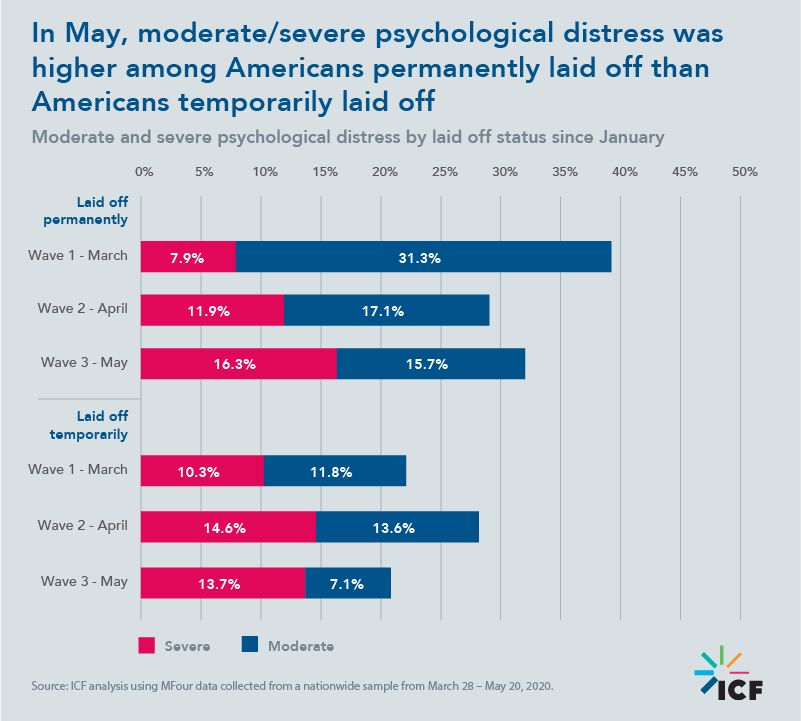
Household income reductions were related to poorer mental health.
Change in household income from a year ago was also related to psychological distress. In our May survey, a greater number of Americans reported that their current income had decreased some or a lot—and indicated a greater level of moderate and severe psychological distress than those who reported increases or no change in current income.
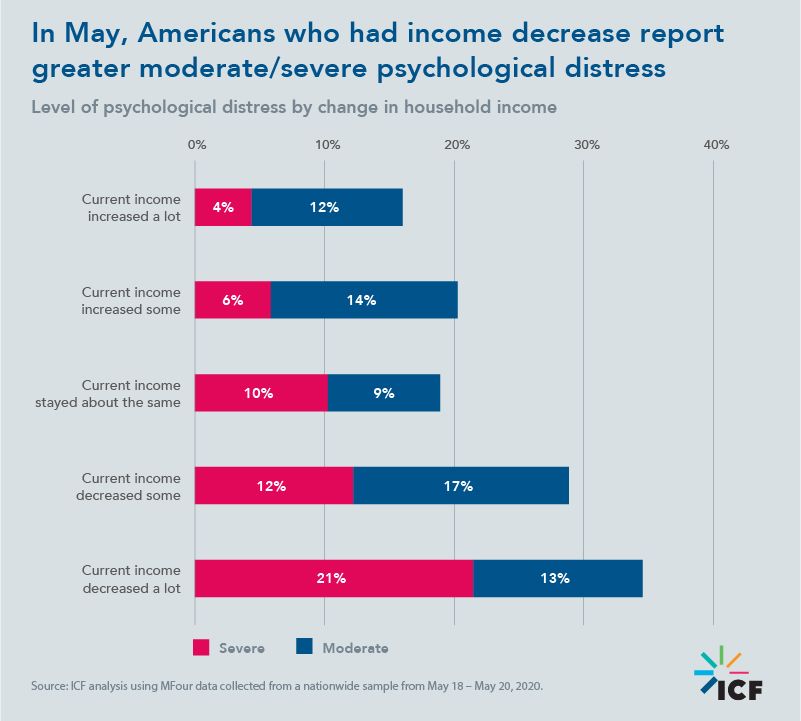
Policy implications
In June, it was officially announced that the U.S. economy had hit a recession in February. This announcement confirmed what many Americans have experienced first-hand over the past several months, and further highlighted the unprecedented impact that COVID-19 is having on society as a whole. Our research finds significant relationships between economic challenges in the aftermath of the pandemic and psychological distress. And it may worsen—if economic decline due to COVID-19 continues, we can expect American mental health to be impacted accordingly. As public health officials look to safeguard and improve the mental health of our citizens, addressing economic struggles appears to be vital to recovery.
